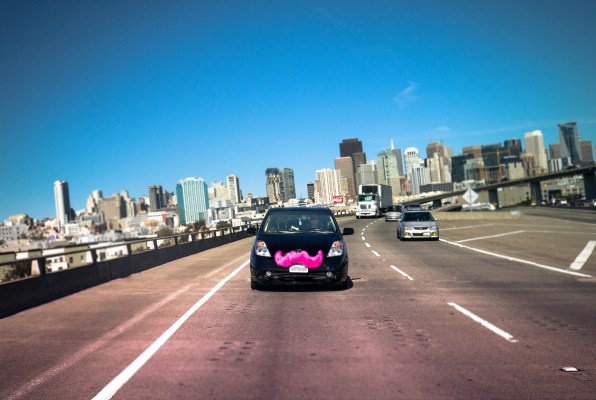After serving two markets in California, ride-sharing startup Lyft is getting serious about expanding into other markets. To do so, the company has acqui-hired the operations team behind Cherry, the on-demand car wash startup. And it’s got plans to launch in Seattle, making its service available there seven days a week beginning April 12.
The acquisition of Cherry comes as Lyft looks to add some operational experience ahead of its launch in the Emerald City and beyond. That means moving fast and getting into as many markets as possible. But it also means managing both supply and demand in whatever city the company launches service in.
Users in San Francisco understand that hasn’t always been possible, as demand frequently outstrips supply in the city, leaving riders with no Lyft drivers available during peak hours of the day. But as quickly as the company has been growing in its home market, it’s been growing even more rapidly in Los Angeles, where it launched just a few months ago.
“Having someone strong in operations was going to be really important,” Lyft co-founder John Zimmer told me. “We plan to win in every market that we launch in.”
As part of the Cherry deal, its founder and CEO Travis VanderZanden has joined Lyft as the company’s chief operating officer. He brings with him some serious business experience, having served as chief revenue officer of Yammer prior to founding his own company. Cherry’s senior director of operations, Stephen Schnell, has also joined Lyft to help the company expand into new markets. With VanderZanden coming on board, Zimmer will take the role of president.
Cherry launched last year to offer on-demand car washes to customers who were too busy to clean the vehicle themselves, or to take it out to be washed. The idea was to bring the car wash to them instead. But after introducing the service in a few markets, Cherry abruptly shut down over the holidays.
“We plan to win in every market that we launch in.”
VanderZanden explained that while the service was growing in the San Francisco Bay Area and San Diego, it wasn’t growing at the rate that venture-backed businesses are expected to. After raising more than $5 million from investors such as Shasta Ventures, Founders Fund, and the PayPal mafia (David Sacks, Max Levchin and Keith Rabois), the team began looking for other options.
“In Cherry and in Lyft, we saw two businesses that were operationally very similar,” VanderZanden told me. “Lyft has nailed San Francisco and is nailing L.A., and it’s ready to start scaling up.”
In Lyft, he saw an opportunity to help an emerging company scale up even more quickly. The primary challenge for Lyft is how to quickly grow its business while keeping the community that it has built intact and keeping the quality of the service high. After all, it’s the community that sets Lyft apart from other on-demand transportation services such as Uber, SideCar, or regular taxi e-hail apps.
Lyft has already served up hundreds of thousands of rides in San Francisco and L.A., and next has its sights set on Seattle. After a few more weeks of testing, the service will become generally available April 12. Unlike competitor SideCar, which does gradual rollouts in new cities by initially serving weekends only, Lyft will have seven-day service at launch. It’s hoping that will help it catch up in a market that already has a ride-share service available.
Of course, Seattle isn’t the only new city that Lyft is considering, as it’s looking at other markets that have serious transportation pain points. When examining new launch markets, it also considers the population density and how tech-savvy residents are. Zimmer told me that the company is looking to hit a new market each month, which he thinks is possible with the right people in place.
As it looks to expand, Lyft will likely have competition in most new markets it enters, as SideCar has also been rolling out aggressively in cities across the U.S. SideCar is in nine cities now, three of which will overlap with Lyft’s service. And let’s not forget about Uber, which has had longstanding black car service in most major U.S. cities and is rolling out lower-priced options in many. That includes hiring community drivers itself in San Francisco.
Lyft will also likely face regulatory scrutiny in most new markets. While Seattle has so far had no qualms about SideCar’s operations there, other cities have been far less friendly. SideCar has faced issues with local officials in both Philadelphia and Austin, two cities which have tried to clamp down on community drivers — that is, people without taxi or limo licenses — giving rides for money. Before that, Uber had faced regulatory scrutiny in a number of cities, including New York, Boston, and Washington, D.C. But for new transportation services, it seems that dealing with regulators is just the cost of doing business.
Lyft, which is based in San Francisco, now has more than 50 employees. The company recently raised $15 million in new funding led by Founders Fund.
